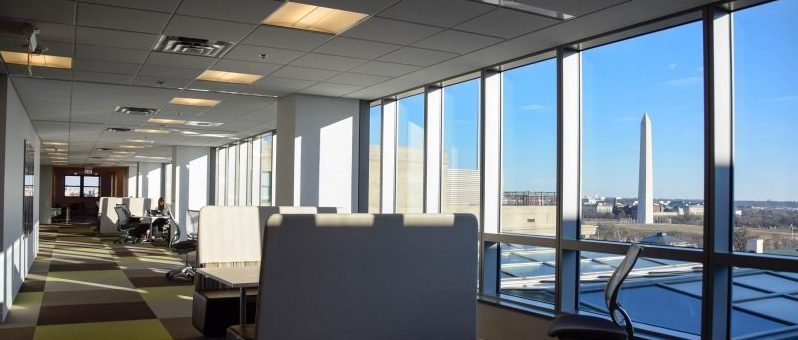Anil Cheriyan isn’t a fan of checking boxes and discussing abstract outcomes.
The former SunTrust Chief Information Officer turned federal executive is after tangible and sustainable progress for how he wants the General Services Administration’s Technology Transformation Services (TTS) to help federal agencies build, buy and share technology that better serves the public.
“The main cultural changes that we are driving towards is really delivering success with quality and delivering outcomes,” Cheriyan, the Director of TTS, told an audience of government and industry professionals at ATARC’s 2019 GITEC Emerging Technology Conference in Annapolis, Maryland.
The TTS portfolio includes the digital consulting office 18F, which partners with agencies to build and buy digital services; the IT Modernization Centers of Excellence, a centralized team of technical experts that accelerates agencywide IT modernization; and the Presidential Innovation Fellowship program, which pairs industry technologists with government employees for a specific time to tackle big issues.
Take the 18F team, for example. The organization works with more than 17 different agencies and has a staff of more than 100 people. The team is doing impactful work, Cheriyan said, including projects with the Health and Human Services Department that contribute to addressing substance abuse and mental health, as well as work at the Office of Personnel Management and Defense Department.
But part of the issue that Cheriyan has seen in his four months at TTS is scale. These are specific projects that are driving change at a specific level. “My early readings on the 18F team is that they do really good work, but it’s not really extended across all the opportunities that can be driven [to other agencies],” Cheriyan said. He added, “I’m not sure about the level at which people are seeing the outcomes across the industry, and that’s one of the things I would like to address.”
He pointed to the IT Modernization Centers of Excellence (CoE) as an example of the type of widespread transformation that he would like to see supported by TTS. Rather than only tackling individual projects, he wants to see a top-down view where transformation is addressed on a larger scale. For example, the Agriculture (USDA) and Housing and Urban Development (HUD) departments are currently pioneering the CoE concept and focusing on key areas, such as cloud adoption, data analytics and contact center modernization.
Cheriyan wants to see three more agencies get on board with the CoE initiative this year and another three next year to build momentum — but making these types of big changes may be difficult during the upcoming presidential election year.
The end goal, he said, isn’t how many apps move to the cloud but rather how these transformation initiatives benefit federal employees and the citizens they serve. At USDA, for example, are farmers able to get loans faster? Cheriyan said his team won’t hide beyond checkboxes and milestones. Come July, they will check to see if farmers are getting the help they need in a timely manner.
“We will have more stories about the real progress, and we will have more outreach,” he said. To establish sustainable progress, Cheriyan highlighted the seven core competencies that TTS is focused on. Many of these areas will build on CoE work already happening at agencies like USDA. The seven areas include:
- Omnichannel and driving client experiences while focusing on web and mobile chat.
- Data center modernization and cloud. That includes creating playbooks to drive change around how agencies buy and migrate to the cloud.
- Data analytics and score carding. For example, at USDA, the secretary has a dashboard that he uses to measure progress in specific areas.
- Acquisitions and improving the speed at which agencies buy goods and services.
- Accelerators such as Agile, DevOps and development processes.
- Intelligent process automation, including robotic process automation and artificial intelligence are fairly new for TTS. Cheriyan said this approach helps drive progress without having to reengineer systems.
- Identity is an area of huge opportunity and a work in progress, he said. Every agency needs some version of identity and identity proofing. His team describes this work as “Everest” because it will take significant thought and work to achieve.
Cheriyan stressed that TTS will not grow into a massive consulting firm but instead will partner with industry because the organization will not be able to build everything on its own — nor should it. Ultimately, any change or progress that occurs should be results-driven.
Whether it’s consolidating data centers or contact centers, Cheriyan said there’s one question that should be top of mind: What does it really mean for the citizens of this country?





Love this Nicole, especially Cheriyan’s emphasis on CoEs!
Can’t wait to see how CoEs evolve! Thanks, Sherin.